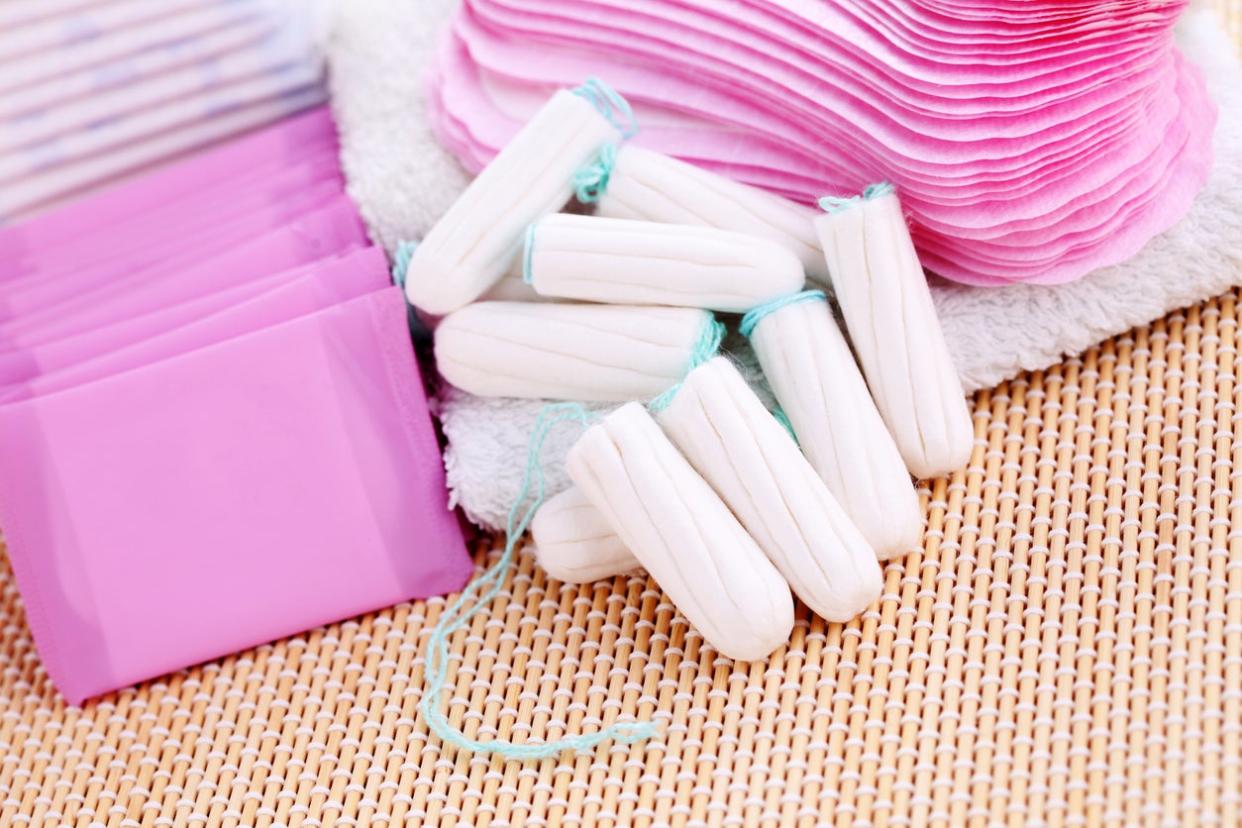This supermarket is doing a ‘buy one give one’ on sanitary products to help tackle period poverty

‘Period poverty has increased massively’ during the pandemic, claims one charity.
(Getty Images/iStockphoto)UK supermarket retailer Morrisons has recognised the desperate need some girls have for period products during the pandemic.
Morrisons' new scheme will address this health poverty issue head-on, the retailer will donate one sanitary product for every Morrisons own-brand or Bodyform period product bought until 10 March. The donated sanitary products will be delivered to a local food bank or community group.
The State of Girls' Rights in the UK report, conducted by children's charity Plan International UK, has found almost a third (30 per cent) of girls between 14-21 have had issues either affording or accessing period products since lockdown, one in seven have had to ask to borrow sanitary wear from friends due to affordability issues, and one in ten have had to improvise sanitary wear. Some 137,000 children across the UK miss a day of school due to not being about to afford sanitary products.
"Period poverty has increased massively," said Tina Leslie, founder of Freedom4girls, an organisation dedicated to fighting period poverty, she’s seen requests for free period products increase fivefold since the first lockdown. Leslie said that Morrisons' campaign is a notable step forward in this largely ignored problem facing women and girls in Britain. "It's fantastic that Morrisons have realised the issue that no one talks about and is helping vulnerable people to gain access to much-needed products," she said.
In October 2020, Tesco apologised for suggesting that sanitary products were not essential, after customers were told they couldn’t pick up sanitary towels in its St Mellons, Cardiff, store. “Sanitary products are essential,” said Sharael Mackay, health buying manager at Morrisons, and “period poverty is a problem for many of the most vulnerable in our communities … for every product our customers buy, we can ensure we’re helping those who really need it.”
The pandemic has brought up a whole host of issues that exacerbate period poverty. With the increasing financial constraints, due to people on furlough and redundancy as a result of Covid-19, "there is a whole raft of new people who are financially insecure," said Leslie. "Schools have been closed so children are unable to access the free school period product scheme, some young people would normally rely on that provision. "There’s been a massive increase in foodbank usage, if you can’t afford food you certainly cannot afford period products."
Plan International’s recent stats on the issue “should serve as a real eye-opener to the problems girls are facing up and down the country,” said Rose Caldwell, CEO at Plan International UK.
In January 2020, the government introduced free period products for schools scheme and in November 2020, Scotland became the first country to make period products free for all who need them.
“We are concerned that this pandemic could set us back still further,” said Caldwell urging the government for more help. “There is an urgent need for policymakers in the UK to ensure girls’ voices are heard throughout this crisis and afterwards, especially girls who are vulnerable and often the least heard,” she said, “we mustn’t turn back the clock on girls’ rights”.
Morrisons offset VAT costs on all of its female sanitary products since 2017, but it took until January 2021 for the government to officially scrap tampon tax. EU VAT Directive still mandates a minimum of five per cent tax on all sanitary products.
According to the NHS, periods last between three and eight days, but most women and girls bleed for about five days. According to research conducted by OnePoll on behalf of menstrual cup brand Intimina, the average woman spends £10.24 on sanitary product per month, depending on a woman’s flow. Women will spend an average of £4,916 each on their periods in their lifetimes.
Read More
Coronavirus: One in 25 families struggling with period poverty as result of Covid-19
Menstrual Hygiene Day: Period poverty is getting worse during lockdown, charity warns
Morrisons to become first major supermarket to pay staff at least £10 an hour

